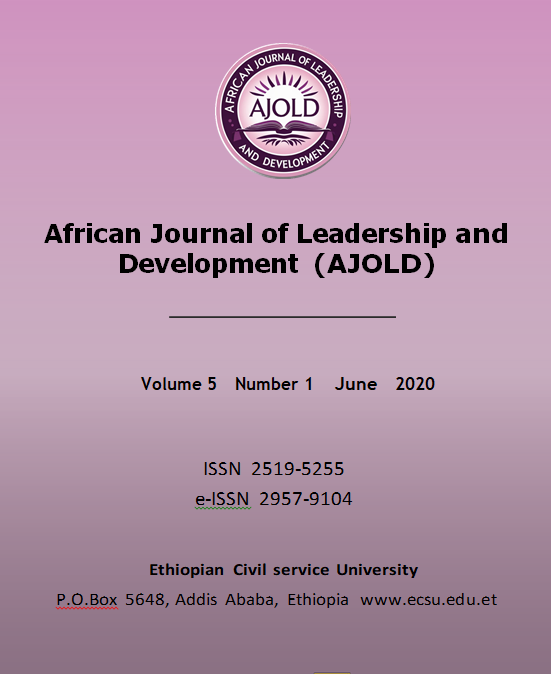Factors Affecting e-Tourism Readiness in Ethiopia: Evidence from Federal Tourism Institutions
DOI:
https://doi.org/10.63990/2020ajoldvol5iss1pp37-45Keywords:
E-government, E-tourism, E-readiness, EthiopiaAbstract
Governments around the globe are striving for providing a wider and flexible range of public services tailored for all types of customers in a most efficient manner in terms of cost, time, and convenience. Based on the survey of 137 experts, Ordinal logistic regression model was estimated to identify factors that affect e-tourism readiness in Ethiopia. Experts subjective assessment was used to measure the status of readiness to implement e-government initiatives. While organizational commitment, technical capacity, and employees' readiness found to have significant effect on the rank of e-tourism readiness, managerial competence appears to have no association at all. Results indicate that interventions aiming at promoting organizational commitment, enhancing technical capacity, and advancing employees' capacity attitude and initiation will immensely contribute to implement e-government projects. In general, the results of the study provide the implication that improving institutions readiness to implement e-government initiatives in the tourism sector in Ethiopia calls for adoption of diverse strategies and policies.
Downloads
Published
How to Cite
Issue
Section
License
This work is licensed under a Creative Commons Attribution-NonCommercial 4.0 International License






